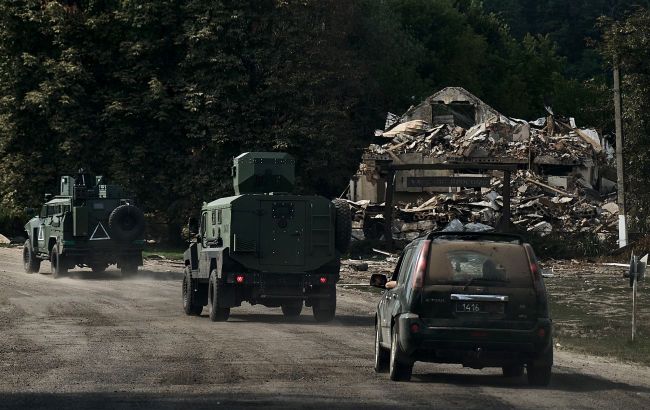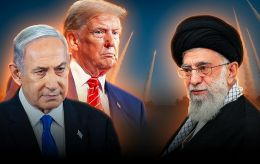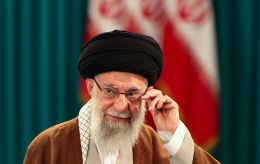Russian troop relocation to Kursk region: What it means for frontline
 Photo: Ukrainian Armed Forces offensive in the Kursk region (Getty Images)
Photo: Ukrainian Armed Forces offensive in the Kursk region (Getty Images)
The Armed Forces of Ukraine are continuing their operation in the Kursk region. In response, Russia has begun gradually relocating its troops to the area, including from the southern front, stated National Guard spokesperson Ruslan Muzychuk.
He noted that the movement of Russian troops is not very fast and not in significant numbers. Muzychuk explained that the impact on the front lines could be felt in the short or medium term.
"This does not concern the main strike directions, where the enemy is actually concentrating its forces," he added.
According to him, the Russian forces are reinforcing their motorized rifle and tank units, as well as their naval infantry. They plan to strengthen their offensive actions on critical sections of the front.
The operation in Kursk region
The Ukrainian Armed Forces began their advance into the Kursk region on August 6. This operation is necessary to protect Ukrainian border regions from Russian shelling and to create a buffer zone.
On August 19, Ukrainian President Volodymyr Zelenskyy announced that Ukrainian forces control over 1,250 square kilometers of enemy territory and 92 settlements in the Kursk region.
Russian President Vladimir Putin has ordered his military to push Ukrainian forces out of the Kursk region.
Earlier, the media reported that Russia had allegedly decided to withdraw its troops from the front line in Ukraine to redeploy them to the Kursk region. Meanwhile, Lithuania’s Ministry of Defense stated that Russia was sending forces from the Kaliningrad area to this region.
Ukrainian aviation was spotted in the skies over the Kursk region, with the Air Force sharing video footage of Ukrainian pilots in action.
For more details on the Kursk breakthrough, its goals, and objectives, see the commentary by Viktor Kevliuk, an expert at the Center for Defense Strategies, provided to RBC-Ukraine.

